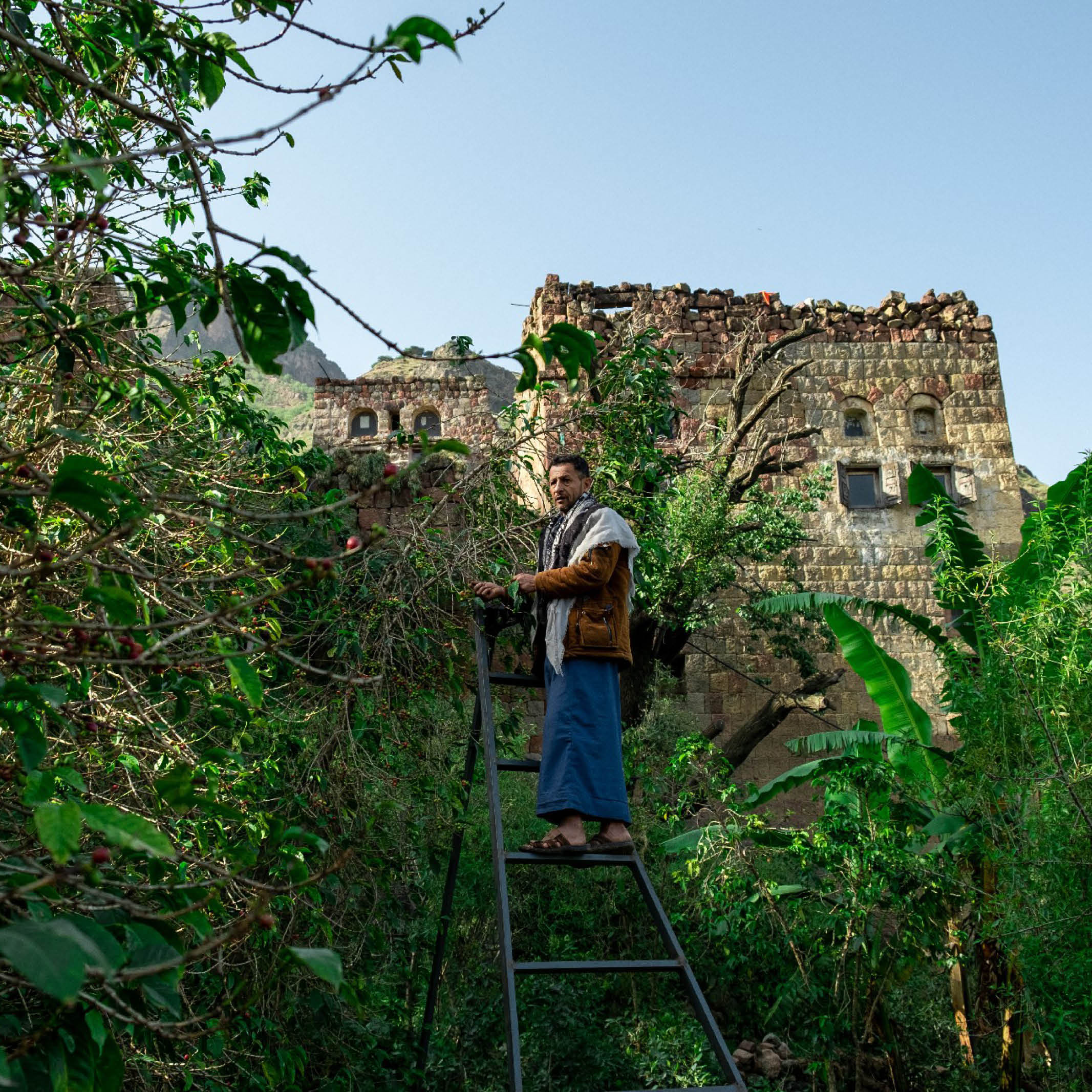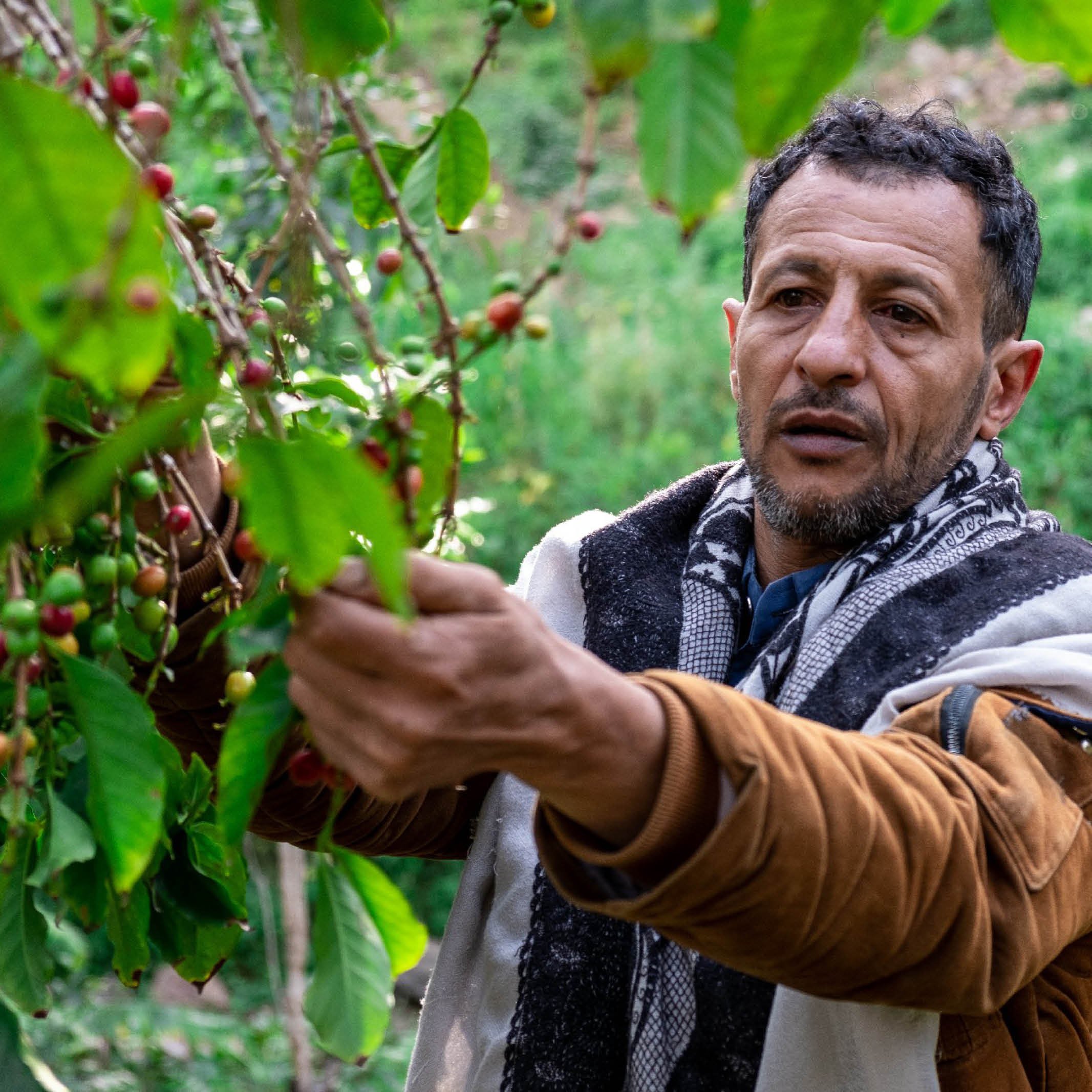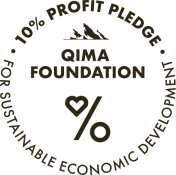


13.
Amir Ahmed
Jury code : 7408

jury score :
87.89
Genetics :
Yemenia
Process :
Natural
lot size :
132.00LBS
traceability
VILLAGE :Hejrat Alayn
REGION : Hayma Dakhiliya
GOVERNORATE : Sanaa
ALTITUDE :2000-2200masl

FLAVOUR PROFILE
Plum, Lime Candy, Milk & Honey
Story Behind the Coffee
<p>Amir Ahmed is more than a coffee farmer. He describes himself as a ‘coffee lover, expert and ambassador’, coming from a long line of coffee farmers who have been tilling land in Yemen for generations. His painstaking attention to detail comes from this lineage, including caring for the soil, the trees and the harvest.</p><p><br></p><p>Amir’s farm is located on narrow terraces that are difficult to access with modern equipment and tools. Cultivating coffee on this territory is labour-intensive and could prove to be less efficient. Coupled with the low market prices for coffee, this poses serious challenges to Amir's practice. But he is determined to make this work. “Nothing is insurmountable. My love for Yemeni culture, my product, and the commitment to grow the best quality coffee possible, keeps me going.”</p><p><br></p><p>He believes that coffee is a way to connect with people from different cultures and backgrounds. Amir is also hopeful that the situation for coffee farmers will improve in the future, and he is working to make his farm more profitable. His son, who studied agricultural engineering, has recently joined the field with a mission to help Amir improve his farming practices and yield.</p><p><br></p><p>Amir’s message to his fellow farmers urges them to take care of their trees, especially in winters. He closes the conversation with a note for the people who drink his coffee: “It is a matter of great pride that my beans have reached you. It motivates me to do better and increase my production.” </p><p><br></p><p><br></p>


